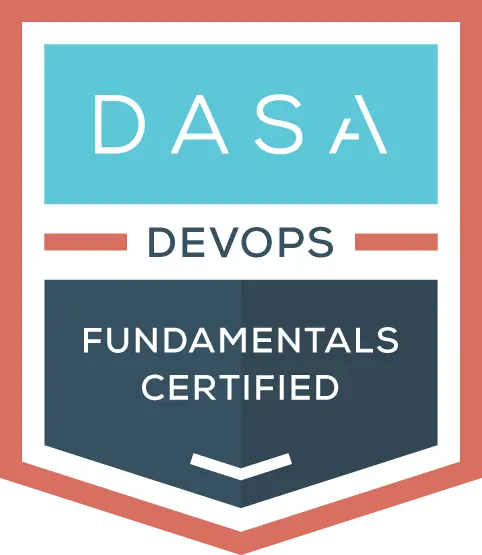As organizations strive to stay competitive in the digital market, DevOps emerges not just as a trend but as a strategic imperative. Embracing DevOps can drive efficiency, enhance collaboration, and accelerate delivery cycles. This article delves into the core principles of DevOps, its benefits, and practical steps to implement and sustain it effectively.
The Essence of DevOps
DevOps represents a cultural and operational shift that bridges the gap between development (Dev) and operations (Ops) teams. By fostering a collaborative environment, it emphasizes continuous delivery, automation, and monitoring throughout the software development lifecycle. This holistic approach enables organizations to deliver high-quality software rapidly and reliably.
Key principles of DevOps includes:
- Cross-Team Collaboration: Break down silos between development, operations, and other teams. Encourage a shared vision and collective responsibility for delivering and maintaining applications.
- Automation: Automate repetitive tasks to free up time for innovation and strategic initiatives. Automation also enhances consistency, reduces errors, and speeds up processes.
- Shift Left: Integrate testing, security, and quality assurance earlier in the development process. Early detection and resolution of issues minimize costs and improve product quality.
- Continuous Monitoring and Feedback: Implement robust monitoring to quickly identify and resolve issues. Use feedback loops to drive continuous improvement.
Overcoming Common Challenges
Integrating DevOps into your organization can tackle some common challenges that many organizations face. For example, long delivery cycles can lead to missed market opportunities and reduced customer satisfaction. DevOps shortens these cycles by promoting iterative development and continuous integration/continuous deployment (CI/CD) pipelines. This approach ensures that new features and updates are delivered faster and more frequently.
Inconsistent environments across development, testing, and production can lead to bugs and unexpected behavior. Infrastructure as Code (IaC) tools like Terraform and Ansible ensure that environments are consistently defined and reproducible, reducing configuration drift and improving stability.
Highly skilled IT professionals are a valuable – but costly – resource. By automating repetitive tasks, organizations can optimize their workforce, allowing skilled professionals to focus on high-value activities and innovation. This also helps retain top talent by providing more engaging and challenging work.
DevOp also integrates security practices into the development process, a practice known as DevSecOps. Tools like Aqua Security and automated image scanning ensure that security policies are enforced throughout the CI/CD pipeline, reducing vulnerabilities and improving compliance.
Finally, scalability is crucial for supporting growing user bases and data volumes. DevOps practices, combined with containerization tools like Docker and Kubernetes, enable organizations to scale applications efficiently. These technologies provide the flexibility to deploy and manage applications across diverse environments.
Practical Implementation Strategies
Implementing a DevOps transformation in your organization can be daunting, but there are some key implementation strategies that can help you in the process. Begin with small, manageable projects that demonstrate the value of DevOps. Tackle low-hanging fruit, such as automating infrastructure provisioning and configuration. This approach builds momentum and provides early wins that can justify further investment in DevOps.
Introduce core DevOps principles, such as version control and IaC, from the outset. This will help you to establish practices for collaborative development and automated testing to ensure consistent and high-quality outcomes. Automate the foundational elements of your IT environment before moving to more complex workflows. For example, start by automating server provisioning and software deployment. Once these basics are in place, you can layer on more advanced automation, such as CI/CD pipelines and security testing.
Once you establish DevOps in your organization, continuously monitor and measure the performance of your DevOps initiatives. Use metrics to identify areas for improvement and iterate on your processes. This feedback loop is essential for achieving and maintaining high performance.
DevOps requires a cultural shift that involves continuous learning and adaptation. Invest in training and upskilling your teams to ensure they have the knowledge and tools to succeed. Encourage cross-functional collaboration and create a culture of shared responsibility.
Real-World Examples
University of Sussex
Faced with the end-of-life of CentOS, the University of Sussex needed to migrate to Red Hat while enhancing their DevOps capabilities. By integrating Ansible for configuration management and running parallel DevOps training sessions, the university successfully migrated its IT estate and improved operational efficiency.
Conclusion
DevOps is not a trend, but a critical approach to modern IT management. By fostering collaboration, automating processes, and embedding security and quality from the start, organizations can achieve faster delivery cycles, improved stability, and enhanced scalability. Embracing DevOps for the long haul requires commitment, continuous learning, and a willingness to adapt, but the rewards are well worth the effort.


DASA DevOps Certification Program
DASA DevOps Certification Program equips you with the foundational skills to understand and implement key DevOps principles. You’ll learn how to foster collaboration across teams, streamline workflows, and accelerate delivery cycles—all while ensuring your organization is prepared for long-term digital transformation.
